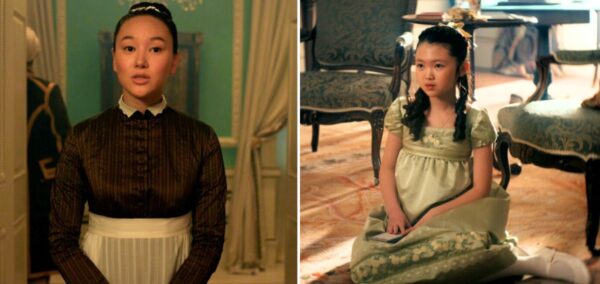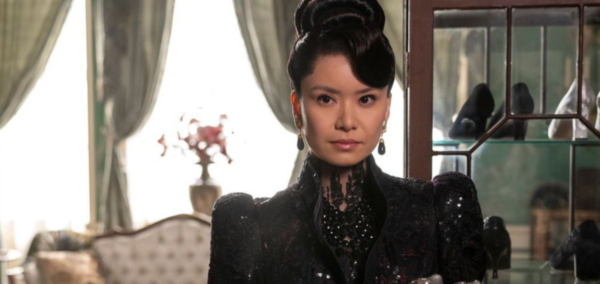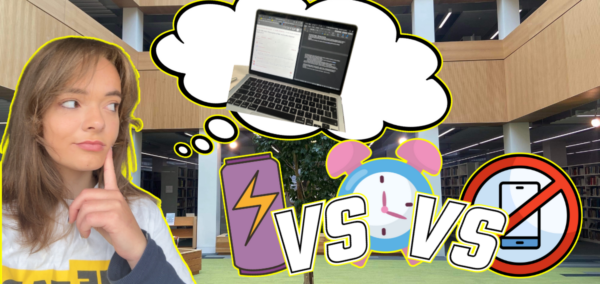
These are all the Russell Group universities where staff can still have relationships with students
Staff-student relationships are permitted at 18 Russell Group universities
This month, the Office for Students is undergoing a consultation on regulating sexual harassment and misconduct at UK universities. It has set out two options for universities relating to relationships between staff and students, including a register or ban of these relationships. It will be publishing its consultation outcomes in the coming months. This means that “personal relationships” between staff and students at universities in England could be made to be fully declared or prohibited.
One student, Blake Sunday, told ITV News how her alleged abusive relationship with a senior member of staff drove her to attempt suicide. She said: “Academia was meant to be my safe space, it was meant to be where people understand me. I got there and it was so unsafe for me.”
In Bristol earlier this year, The Tab also reported that a student reached out to her seminar tutor for help but then he asked her out for drinks.
Despite this, most Russell Groups don’t actually outright ban relationships between staff and students. The Russell Groups that have categorically banned staff-student relationships are University College London, The University of Exeter, The University of Nottingham and The University of Oxford.
At Imperial College London, Newcastle University, Durham University and London School of Economics, there is a partial ban where relationships are prohibited in the case of direct supervision, teaching or assessment or pastoral support between the student and staff member. The rest of the Russell Groups tend to have a policy discouraging them and requiring the staff member to inform the university but do not ban them.
So, here are all the Russell Group universities where staff and student relationships are still allowed:
University of Manchester
Most Read
At Manchester, staff-student relationships are fully permitted. Its Consensual Relationship Policy suggests: “The university does not wish to prevent liaisons between staff and student and it relies upon the integrity of both parties to ensure that abuses of power do not occur.”
Staff are told to inform their Head of Department if they are in a relationship with a student so that they can be removed from their assessment and teaching. Only if a staff member fails to do this can they be disciplined.
University of Cambridge
At Cambridge, relationships between staff and students are discouraged but not outright banned. Any member of staff in a relationship with a student must report it to the university or face disciplinary action. The guidance reads: “A personal relationship of a sexual or other intimate nature between a member of staff and a student, with whom that member of staff also has a professional connection, gives rise to an actual or apparent conflict of interest.”
Any staff involved in a relationship with a student “must disclose the relationship immediately to the member of staff’s Head of Department .”
University of Bristol
At Bristol, although staff-student relationships are “discouraged” they are not banned. Since 2019, the university has required all staff members to report any involvement with a student to their Head of School as outlined in its sexual misconduct and relationships policy.
Earlier this year, a “much older seminar tutor” asked a Bristol student out for food and drinks after she opened up to them about her problem with drugs. The student said: “I am worried that speaking out about it or even how I act with him in the future will impact my grades which really shouldn’t be the case.”
Cardiff University
Cardiff has a similar policy where staff-student relationships are frowned upon but not banned. The code of practice reads: “Everyone who is employed in any capacity by the university is in a position of authority over Cardiff University students and must not abuse that authority in any way to initiate or develop a close personal relationship with a student”
The University advises that in a situation where a relationship does develop, “it is always incumbent on the member of staff to ensure that the essential standards of academic integrity and impartiality are maintained”.
University of Edinburgh
The University of Edinburgh published new guidelines regarding staff-student relationships in February 2019. The Policy on Disclosure of Intimate Relationships advises that the university discourages staff-student relationships but requires staff members to report them if they do happen and take steps to “protect the integrity and welfare of both parties”.
University of Glasgow

In Glasgow’s Personal Relationships Policy, it suggests staff are “required to disclose any type of close personal relationship with a student, or any type of personal relationship with another member of staff which could be perceived as presenting a conflict of interest to the University. This will allow appropriate management of the situation and to avoid any actual or potential conflict of interest.”
The policy continues: “It is recognised that in some cases, there is little, or no, power imbalance between a member of staff and student, and in such cases the university would not wish to prevent relationships.” So, like many universities, relationships are required to be disclosed and are strongly discouraged but not necessarily banned.
King’s College London
At King’s, personal relationships between staff and the students they teach or assess are “very strongly discouraged” but not banned. The Policy for Relationships between Staff and Students reads: “Members of staff at King’s are strongly discouraged from entering into a personal relationship with any student whom they are responsible for assessing, supervising, tutoring, mentoring, teaching or to whom they provide pastoral care or administrative and/or technical support.”
It adds: “Although the university regards it as unprofessional for any staff member to actively seek to initiate a personal relationship or to pursue such a relationship with a student without regard to the problems which may ensue, it also recognises that such relationships may none the less develop.”
University of Leeds
Leeds is another university that strongly discourages but doesn’t ban staff-student relationships. Its Code of Conduct regarding professional behaviour and relationships reads: “The University strongly discourages any member of staff from having, or pursuing a personal or intimate relationship with a student/PGR. Where there is a pre-existing relationship or one develops, the Head of School or Head of Service should be informed immediately. Failure to declare a relationship could lead to disciplinary action.”
University of Liverpool
The University of Liverpool’s Personal Relationships Policy, which was reviewed in 2022, suggests: “The University strongly discourages any member of staff from having, or pursuing a personal or intimate relationship with a student however it is also recognised that the vast majority of students are aged 18 or over and therefore recognises that there may be occasions where relationships develop that may be romantic or sexual in nature.
“In these circumstances, there is a duty to ensure that abuses of power do not occur and to guard against this and the perception of abuse of power.”
Queen Mary University of London

At Queen Mary, as of 2018, staff members are “strongly discouraged” from entering into a personal relationship with any student whom they are responsible for assessing, tutoring, mentoring, teaching or to whom they provide pastoral care or administrative and/or technical support.” They are not outright banned, however.
Again, any member of staff in a relationship with a student is required to report it to their Head of Department.
Queen’s University Belfast
In Queen’s University Belfast’s Guidance Policy on Staff Relationships, it is outlined that staff and student relationships are not banned. Instead, they just remove the student from any contact with the staff member. The policy suggests these relationships are a “professional issue” and “where such a relationship exists, action should be taken, if possible to avoid academic/professional contact. When this is not possible, additional safeguards should be incorporated into the process, including double marking, use of external examiners etc.”
University Birmingham
At Birmingham, staff-student relationships are, again, not outwardly banned but according to its conflicts of interest policy, must be declared to the university. The policy says: “The University of Birmingham asks staff to declare activities or circumstances that might give rise to conflicts of interest or the perception of conflicts, including any form of close personal relationship with a student, to their line manager to ensure that such conflicts are properly managed or avoided.”
University of Sheffield
The University of Sheffield does not ban staff-student relationships but again, strongly discourages them. Staff are also required to inform their Head of Department of any such relationship immediately.
Its policy reads: “Consent to form a relationship, especially a sexual one, is nuanced and depends on individuals having both the freedom and capacity to give consent. This can be linked to whether in perception or reality, something negative could happen to the person if they did not consent – such as their studies or career progression being negatively affected.
“The university therefore strongly discourages any member of staff from entering into a sexual/romantic relationship with a student where there may be an actual, potential or perceived conflict of interest.”
University of Southampton
Southampton is another university which doesn’t ban staff-student relationships. In its Responsibilities and Obligations of Tutors Guidelines it says: “A personal relationship between a member of staff and a student, particularly where it is a romantic or sexual one, will always involve serious risks rooted in unequal power as well as real problems in maintaining the boundaries of professional and personal life.
“In such circumstance, staff are strongly advised to terminate any supervisory, assessment or other direct professional responsibility in connection with the student and to make alternative arrangements for the discharge of those responsibilities.”
University of Warwick
At Warwick, staff and student relationships are not banned but “strongly advised against”. Its Personal Conflicts of Interest Guidance for Staff and Students says: “In order to maintain a professional relationship with students based on trust, confidence and equal treatment, staff are strongly advised not to enter into an intimate relationship with a student for whom they have a professional responsibility. Such relationships can lead to a lack of confidence in the integrity of due process and perceived or actual conflicts of interest, which can have a detrimental effect on the teaching and learning environment for other students and colleagues.”
However, it does add: “The University also recognises that in certain circumstances, a conflict of interest may arise between an academic member of staff and a family member.” In these cases, staff should alert their Head of Department to ensure they will not be teaching the student in any capacity.
University of York
Again, York does not outrightly ban student and staff relationships but staff are required to inform their Head of Department if they are in a relationship with a student. Its Personal relationships section of its HR policies suggests: “To embark on a personal relationship with a student may involve serious complications rooted in unequal power, and hence choice, of the parties concerned, as well as real problems in maintaining the boundaries of professional and personal life. Such relationships can also disrupt the teaching and learning environment for other students and for colleagues.”
Related stories recommended by this writer:
• Unis must ‘strongly discourage’ sexual relationships between students and lecturers
• Bristol Uni student reached out to seminar tutor for help, then he asked her out for drinks
• We spoke to the students who have shagged their lecturers and the stories are wild
















